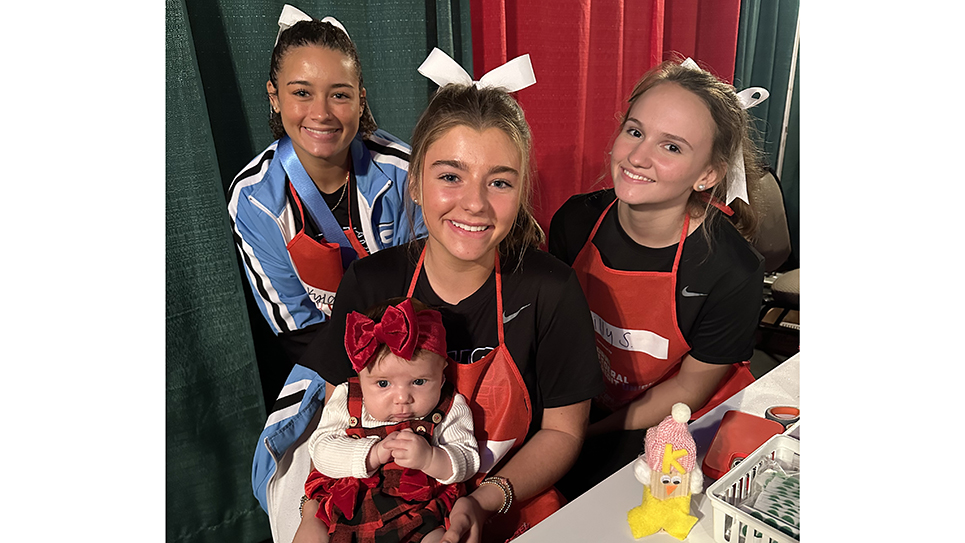How a jersey number becomes special
By Tom Mattingly
When I was working on a book proposal tentatively titled “The University of Tennessee Best of the Best… by the Numbers,” there were a few jersey numbers that were no doubters. Some of the best players in school history made the list.
Among them were No. 57 (Steve Kiner), No. 64 (Jack “Hacksaw” Reynolds), No. 22 (Richmond Flowers), No. 25 (Eddie Brown), No. 72 (George Cafego), No. 84 (Austin Denney), No. 86 (Andy Kozar), No. 92 (Reggie White), and No. 98 (John Henderson).
Then there was one number, No. 27, where two former Vols, key players on national championship teams, were definitely ahead of the crowd. Both Hank Lauricella and Al Wilson are on everybody’s short list of the great players in Vol history. Vol fans speak their names in measured and reverential tones. For the record, one of today’s Vols, James Pearce, Jr., is well on his way to joining this elite group.
Lauricella, a 1951 All-American and two-time All-SEC selection, was a do-everything tailback in Gen. Neyland’s last great coaching era at Tennessee. He handled the single-wing offense with aplomb, except when the Vols got inside an opponent’s 10. Herky Payne then came in, did the heavy lifting, and got the Vols into the end zone.
The Vols were 28-4-1 during Hank’s time on campus. He was the Birmingham Touchdown Club’s “Most Outstanding Back” in 1951. He is a member of the College Football Hall of Fame, inducted in 1981.
His school-record 881 yards rushing in 1951 lasted until 1972. Vol fans believe he got hosed in the 1951 Heisman balloting, much as Peyton Manning was in 1997.
Lauricella earned his way into the hearts of Tennessee fans in the 1951 Cotton Bowl, making one of the most famous runs in school history, a 75-yarder in the first quarter against a favored Texas team. It started first-and-10 at the Vol 20.
Bill Stern had the call for NBC Radio and kept up with Hank nearly step-by-step on a run that went from sideline to sideline and back again.
“Wait ’til you see that run on the newsreels,” Stern observed, his voice rising as the play developed. “They hit him from behind about the 40, and somehow he managed to elude the grasp of four Texans. He completely reversed his field, spun on a dime, handed them eight cents in change, cut toward the center of the field, and again burst into the clear at the 25. He eluded three more men and got down to the five.”
That run led to the Vols’ first score that day, a TD pass from Payne to tight end John Gruble.
Wilson made the Tennessee football history books as the spiritual and emotional leader of the 1998 national champions. He played on teams from 1995-98 that won 45 of 50 games. He was a 2021 College Football Hall of Fame inductee.
He was a team captain, an All-American selection, and a two-time All-SEC selection.
Like Manning, he had spurned NFL gold to return for his senior year. There were no dramatics, Marvin West wrote, just Wilson “mentioning in passing that the NFL could wait.”
West also called him a “fierce hitter with an overflow of intensity,” and that is an understatement. When he talked, his teammates listened, enough so that the 1997 SEC title game against Auburn turned from a 20-10 halftime deficit into a 30-29 win.
Nobody outside the team and coaching staff heard it, but those who were there recalled a tirade directed at star and scrub alike. No one escaped his wrath. It was the winning edge.
In 1998, Al dominated the Florida game as no linebacker had since Steve Kiner’s legendary performance in the 1969 Alabama game (11 tackles and three assists, five lost-yardage tackles, a pass interception, a caused fumble, and four quarterback hurries). It’s not really a stretch to speak of the impact of their leadership in the same breath.
All Wilson did against Florida was compile nine hits, three assists, a tackle for loss, a broken-up pass, and three caused fumbles. The CBS broadcast crew that night worked overtime singing the praises of Wilson’s performance. The Gators were held to minus-13 yards rushing, and Al was SEC “Defensive Player of the Week.” He added nine tackles against Florida State, when every stop seemed to be crucial.
“As one of the team captains that year, I took it on myself to assume the leadership role that had been vacated when Peyton Manning and Leonard Little both graduated,” said Wilson. “Nobody knew for sure who would step up and take over. I decided I was going to lead the team to be the best we could be.”
He did that… and more.
“The coaches treated me as a leader. We trusted one another. That season and that team gave me so many great memories that Tennessee will always be a special place for me.”
A number is merely a number, a means of identification. Right? In this case, a number becomes “special” because of the players who wore it.
That has become abundantly clear over the years, as two Volunteer “greats” who wore No. 27 still stand front and center, bringing great credit and honor to their university and its football program.






